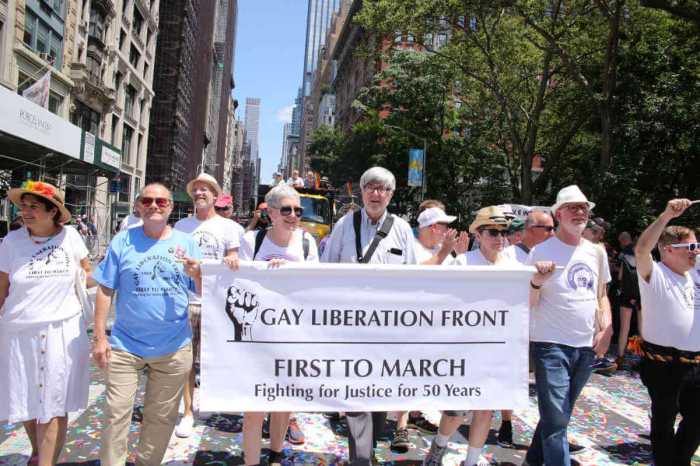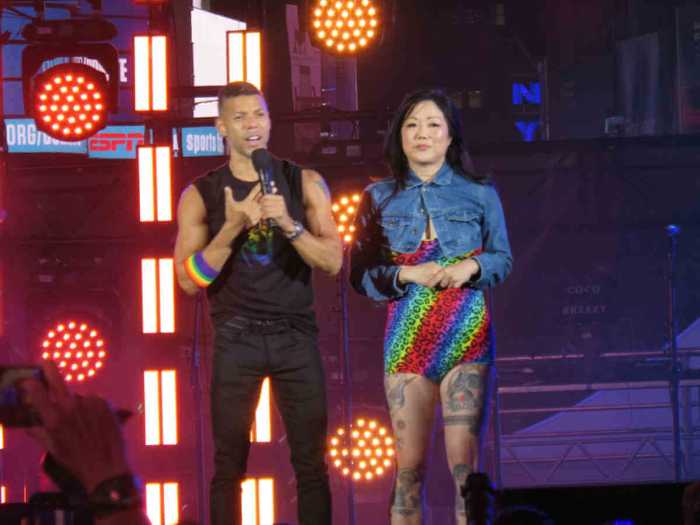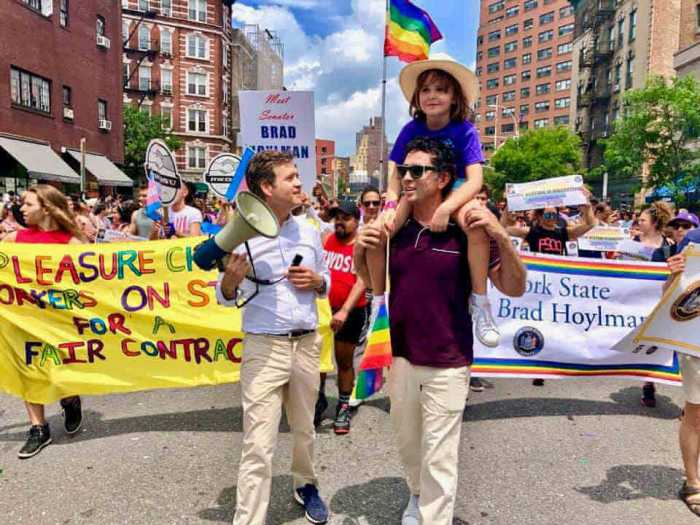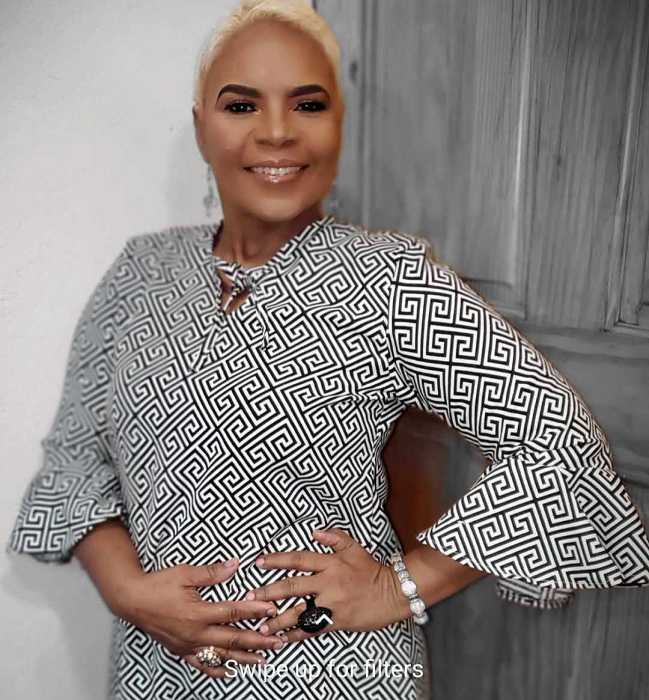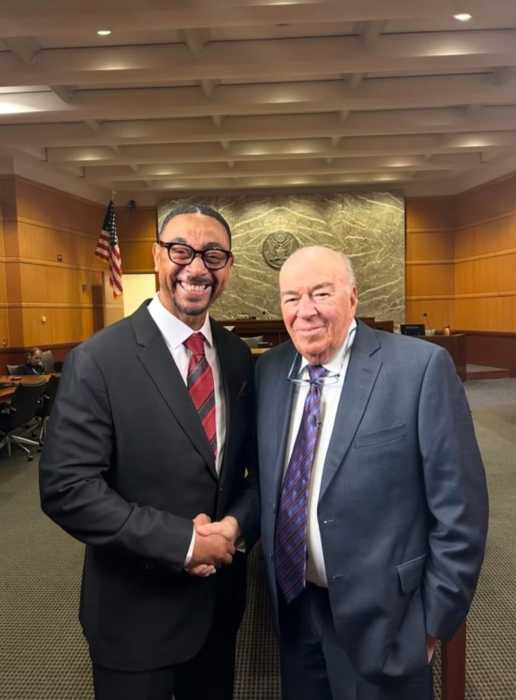Olympic skier Gus Kenworthy and former NBA player Jason Collins talked about their experiences as out gay athletes during a June 27 event in the days leading up to WorldPride.
The pair, sitting together on a couch at an Advocates for Youth WorldPride event in Manhattan, reflected on their coming out stories, dished on the current climate for LGBTQ athletes, and addressed the controversy over the corporatization of Pride.
Collins said he initially came out to some of his friends and family members in 2012 when he was playing with the Boston Celtics, but otherwise remained closeted.
“It was rumored that four NFL football players were going to come out and make a big group joint statement and I was waiting for that to happen,” said Collins, who played 13 seasons in the NBA before retiring in 2014. Those players never did come out.
The notion of being the “first” to come out weighed on his mind — as he watched the film “Moneyball,” which was about how the Oakland Athletics revolutionized the art of building a baseball team in the early 2000s by utilizing analytics and sabermetrics to find effective players on a small budget instead of splashing big money on mega contracts. During that film, it was mentioned that any player who is the “first” at anything often gets bloody.
“I remember seeing that and thinking, ‘I don’t really want to be bloody,’” Collins said. “I wanted somebody else to do it and then I’d come out and make my announcement and hopefully start a wave.”
Still, nobody came out — and Collins was subsequently traded from the Celtics to the Washington Wizards. A new team, of course, meant acquainting himself with a new group of players — and he said he would often lie to teammates about his personal life, telling them that he had a girlfriend.
Kenworthy, 27, endured the same kind of experience — in a completely different sport. He said he was lying about his love life during TV interviews and that ultimately became one of the driving factors in prompting him to come out on ESPN in 2015.
Collins’ coming out two years earlier helped pave the way for Kenworthy. The now 40-year-old former NBA player had roughly a decade in the league before he came out, but waited until after the 2013 season concluded to make his announcement. The final straw that led him to do so was when the Defense of Marriage Act and Proposition 8 were both wiped out in June of that year.
“I came out to Sports Illustrated and my life just took off,” Collins said. “I didn’t know what the reaction was going to be because the playbook for that was to wait until after you retire.”
Meanwhile, Kenworthy described that he reached the “lowest of the lows” at a time when he was flourishing as an athlete and hitting the pinnacle of his sport on the Olympic stage. He felt ashamed of who he was — and he had enough of it.
“I came out really publicly and it was the best decision of my life,” Kenworthy said of his decision to tell ESPN in October of 2015 that he is gay.
Both athletes agreed that the climate for LGBTQ athletes would improve if other athletes come out. Collins added that the support of allies is a necessary component in creating a safe atmosphere for LGBTQ athletes. He cited advances in recent years with the NBA participating in Pride celebrations. Among players to join the NBA at Pride festivities include Reggie Bullock, a straight ally who has been an advocate for queer rights since the death of his transgender sister, Mia Henderson, who was murdered in 2014.
The audience had an opportunity to chime in and ask the athletes questions. During a Q&A session at the end of the event, one audience member asked the pair of athletes about the growing concerns surrounding corporations overshadowing the true meaning of Pride.
“It’s difficult because you need corporate support and you want corporate support,” Kenworthy answered. “And at all these corporations, they have LGBTQ employees and it’s important to let these employees know that they are safe and they are welcome. Also, it’s important to support LGBTQ Pride and support our communities. But I think that there are a lot of layers to that, and you have to see whether they’re continuing that support year round and how they are to their communities outside of Pride Month.”
Collins echoed Kenworthy’s sentiments on that issue, and both athletes recommended that folks research where corporations are spending their money. The former NBA player also noted that any anti-LGBTQ corporation should be mindful of the purchasing power of LGBTQ community.
“One thing I saw was that when I came back into the NBA, my jersey was the number one jersey, not LeBron, not Steph Curry,” Collins said. “That shows the power of the LGBTQ community and also our allies.”
An important theme of the discussion was the role queer women have played in leading the way for men. Collins emphasized the critical role of Billie Jean King and Martina Navratilova as true trailblazers who helped make it easier for men to come out later on. Navratilova, who in recent years has become embroiled in controversy over her apparent uneasiness about trans athletes, came out in the 1981. Billie Jean King, who also came out in 1981, is best known for beating Bobby Riggs in the 1973 “Battle of the Sexes” tennis match.
Collins and Kenworthy will both enjoy their respective places in history. Kenworthy is in the midst of a career during which he has already nabbed a Silver Medal at the 2014 Winter Olympics in Sochi and competed again in the Winter Olympics in 2018 in China, while Collins, a well-respected team player throughout his career in the NBA, will be remembered as the first out gay male professional athlete from one of the four major US sports — MLB, the NBA, the NFL, and the NHL — to come out while still playing.
Also in attendance in the crowd for the discussion was Billy Bean, the former MLB player who played for the Tigers, Dodgers, and Padres and came out in 1999 following his retirement. He went on to pen a book detailing his career and the hardships he endured as a closeted athlete in the big leagues. In recent years, Bean had served as Major League Baseball’s first ambassador of inclusion, but he has since been promoted to vice president and special assistant to the commissioner.
Bean was the second former MLB player to come out, after Glenn Burke, who played for the Dodgers and Athletics in the 1970s and was a trailblazer in more ways than one because he is widely believed to have invented the “high-five.” He made that phenomenon popular in the sports world and then he carried it with him to the gay world when, after retiring, he would give others the high-five outside of gay bars in the Castro in San Francisco during the ‘80s.
But Burke’s story took a tragic turn. Following his retirement, his life was derailed by health woes such as substance abuse and he became homeless on the streets of San Francisco. He died of AIDS complications in 1994, but not before he wrote a fascinating book about his experience navigating the hyper-masculine sports world as a gay man. He acknowledged in his book that his teammates eventually realized he was gay and most of them did not care, though he faced homophobia from his manager, Billy Martin, who hurled homophobic slurs at him.




